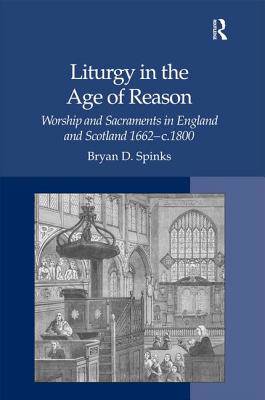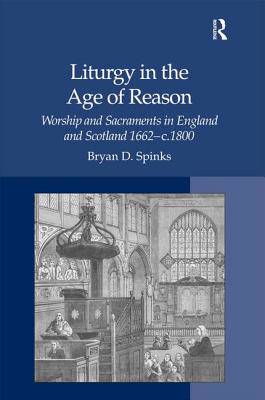
- Retrait gratuit dans votre magasin Club
- 7.000.000 titres dans notre catalogue
- Payer en toute sécurité
- Toujours un magasin près de chez vous
- Retrait gratuit dans votre magasin Club
- 7.000.000 titres dans notre catalogue
- Payer en toute sécurité
- Toujours un magasin près de chez vous
Liturgy in the Age of Reason
Worship and Sacraments in England and Scotland 1662-c.1800
Bryan D Spinks
Livre relié | Anglais
195,95 €
+ 391 points
Format
Description
Worship has always been affected by its surrounding culture. This book examines the changing perspectives in and discussions on worship styles and practices from the Restoration to the death of Wesley, in England and Scotland. Moving beyond the text, Spinks grounds the discussion within the changing cultural and intellectual framework of the period referred to as the Enlightenment. The focus is the end of the early modern period, when already the upheaval of the English Civil War, the methods of the Cambridge Platonists, and the thinking of Descartes and Spinoza were making the period one of transition, and Newtonian thought and the thought of John Locke impacted theological thought and worship forms. It is against this framework that the worship in England and Scotland will be described and assessed. As well as published and unpublished liturgical documents, this book draws on contemporary accounts and descriptions of worship, catechisms, sermons and theological works, and contemporary diaries. Musical and architectural changes are also noted, particularly the late seventeenth century hymns of Richard Davies of Rothwell, Joseph Stennett and Benjamin Keach. This book places worship in the society which it served, and from which changes sprang. It explores the interaction of cultural thought and worship, drawing parallels between the Enlightenment period and problems of late modernity and the worship wars of the late twentieth century.
Spécifications
Parties prenantes
- Auteur(s) :
- Editeur:
Contenu
- Nombre de pages :
- 294
- Langue:
- Anglais
Caractéristiques
- EAN:
- 9780754660897
- Date de parution :
- 28-12-08
- Format:
- Livre relié
- Format numérique:
- Genaaid
- Dimensions :
- 156 mm x 234 mm
- Poids :
- 589 g







